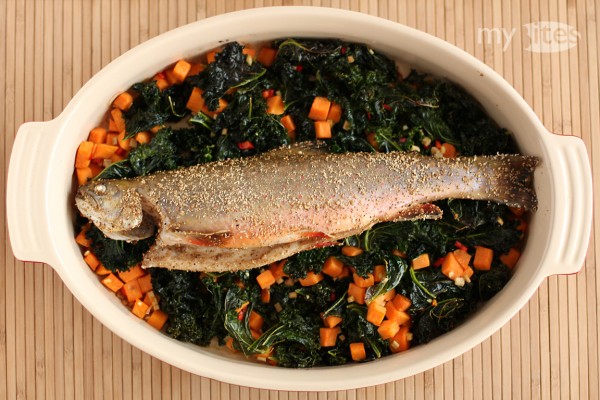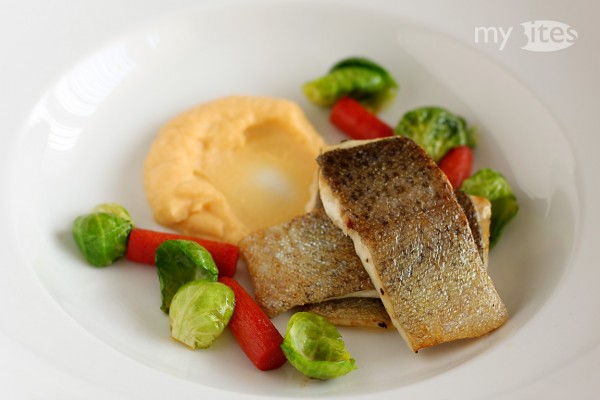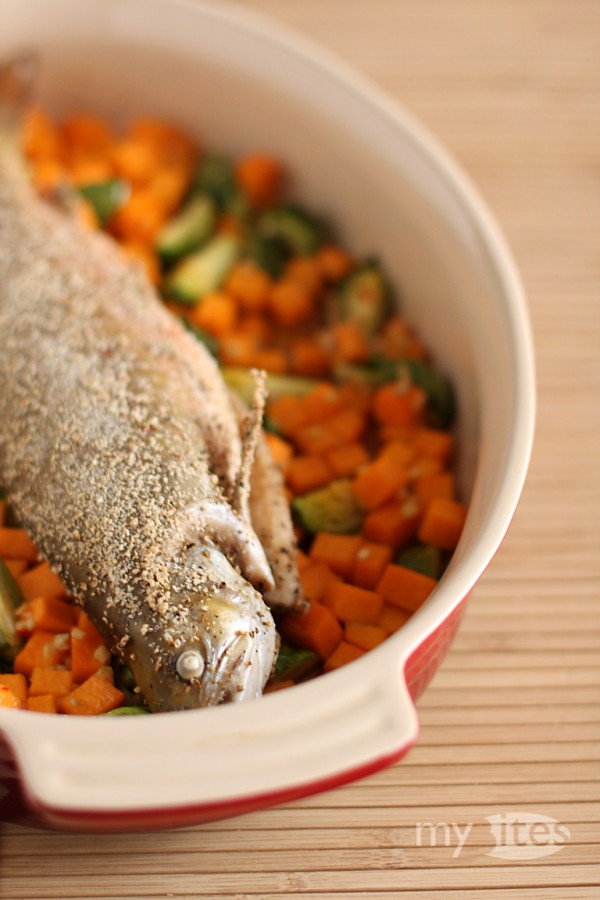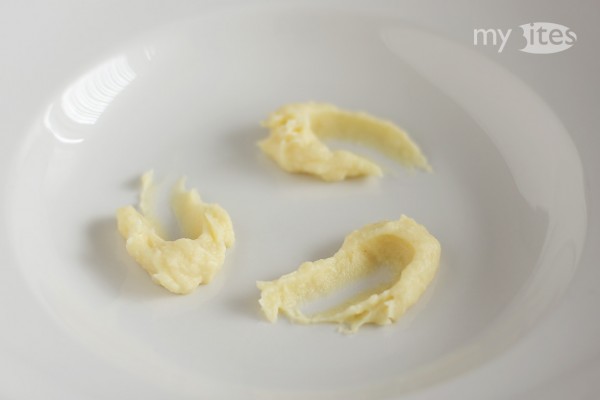Some of the most surprising and greatest results emerge from sheer coincidence. It was a similar case for this crispy kale. I planned to use kale with sweet potato marinated Chinese style with soy sauce, garlic, roasted sesame oil, chili and ginger, and baked along with a whole char or trout in the oven. The result was surprising – an effect I originally haven’t intended or planned to achieve. All kale leaves that were standing out from the vegetable bed got wonderful crispy, resulting in a kind of kale chips with Chinese flavor.
Tag Archives: fall
Trout with Rutabaga Puree, Red Carrots and Brussels Sprouts
If you get bored of potatoes in winter, rutabaga is a great alternative. It makes a puree very similar in consistency, although the rutabaga version is lighter due to its lower starch content. I like to add a small garlic clove to the rutabaga while cooking it over low heat, which adds a nice flavor while not overwhelming the rutabaga’s taste. Rutabaga and especially its cooking liquid always remind me of peanuts. It has the sweetness of the peanuts too, which needs some balance that can be adjusted by a fruit vinegar of your choice.
Char with Asian Style Squash and Brussels Sprouts
Oven baked whole trout or char is one of my favorite dinners. It is simple, fast, delicious and infinitely versatile. Usually, the fish can bought already cleaned and it doesn’t have to filleted. It can be stuffed and flavored with almost any kind of herb, spices or citrus fruits. Also the vegetables can be adjusted according to what you have at home and what vegetables are currently in season. For example, during autumn I prefer to use various mushrooms or fennel and apples. In winter, broccoli with white wine and garlic is great, and also this current combination of butternut squash and Brussels sprouts.
Pigeon Breast with Quince Sauce and Autumn Vegetables
I wondered why red or white wine is usually added to reduced sauces. Usually the wine is allowed to cook off completely, so in most cases – as long as you’re not cooking specifically a red wine sauce – wine is not so much added for its taste than rather for its acidic component. Another function of the wine is to scrape off the brown roasted parts from the bottom of the pot, but for this purpose water works perfectly well too. Instead of the wine I had the idea to add some quince as an acidic component. Cooking quince over a long time magically enhances its flavor, so I thought it would work ideally in a sauce too, since the the basic stock had to be cooked for several hours. The quince worked really well in the sauce, so if you have any problems with adding alcohol to a sauce – although the alcohol will cook off completely – during autumn you can add some fresh quince instead.



